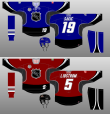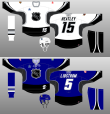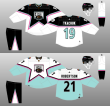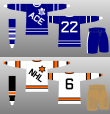
1934 |

1937 |

1939 |
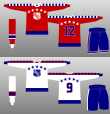
1947-59 |

1960-63 |

1964-68 |

1969-70 |

1971-72 |
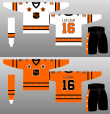
1973-78, 1980-81 |

1979 |
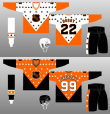
1982 |
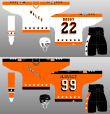
1983 |
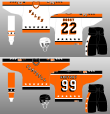
1984-86 |

1987 |
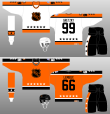
1988 |

1989-91 |

1992 |
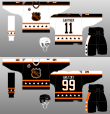
1993 |
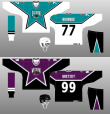
1994-97 |
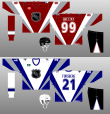
1998-99 |

2004 |

2007 |

2008 |

2009 |
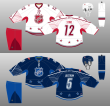
2011-12 |

2015 |

2016 |
|
|
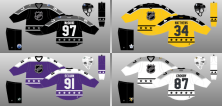
2017 |
|

2018 |
|
|

2024 |
|
|
|
|
All-Star Game
The first time the NHL gathered a team of its best players to play as a single unit was in 1934 for a benefit game for Irvine "Ace" Bailey, whose career was cut short by massive injuries suffered stemming from a check by Eddie Shore. That year, the All-Stars played Bailey's team, the Toronto Maple Leafs, with Toronto winning, 7-3. Two other benefit games were played in the 1930s -- games in memory of Howie Morenz and Babe Siebert, both of the Canadiens.
The first official All-Star Game was played prior to the 1947-48 season. Through 1968, with the exception of 1951 and 1952, the format had been for the All-Stars to play the previous season's Stanley Cup champions. In 1951 and 1952, the All-Stars were split into two teams and squared off against one another. Both those games ended in ties.
With the NHL expanding in 1967, the All-Star Game's format changed soon thereafter, with teams from opposing divisions -- and later conferences -- playing one another.
In 1979 and 1987, the All-Star Game was replaced by a series of games between the NHL All-Stars and the Soviet Union national team. In 1979, it was a best-of-three series at Madison Square Garden, with the Soviets winning, two games to one. In 1987, it was a two-game series in Quebec City, with each team winning one.
From 1998 to 2002, the format changed to one where All-Stars from the U.S. and Canada played the All-Stars from the rest of the world. That made for some interesting situations in which regular season teammates suddenly became All-Star Game opponents.
Besides 1979 and 1987, there were a few other years in which the All-Star Game was not played. There was no All-Star Game in 1966, as the game shifted from pre-season to the middle of the season. Work stoppages led to the cancellations of All-Star games in 1995, 2005 and 2013. And under the terms of the collective bargaining agreement at the time, All-Star games were not held in years in which NHL players compete in the Olympics. That led to the cancellation of the 2006, 2010 and 2014 All-Star games.
|


















































































